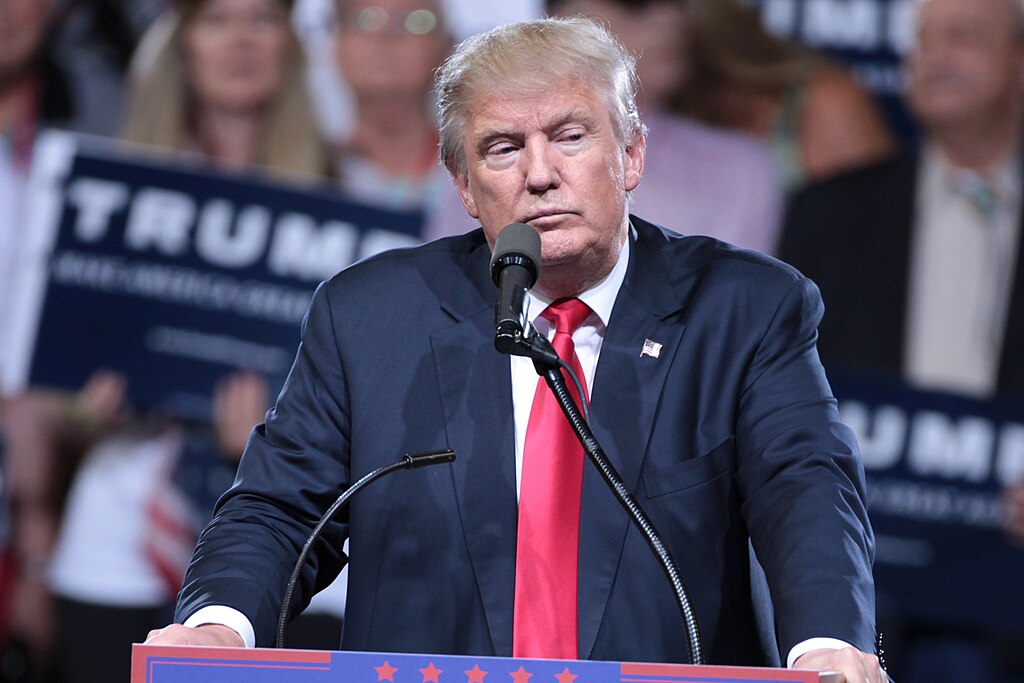In the wake of President-elect Donald Trump’s return to the White House, Robin Ashton, the inspector general for the Central Intelligence Agency (CIA), is reportedly stepping down from her position. The announcement comes amidst growing anticipation of significant shifts within key federal agencies under Trump’s administration. Ashton’s resignation has sparked widespread speculation about the future direction of the CIA and potential overhauls in intelligence oversight.
A Key Resignation Amidst Post-Election Uncertainty
Robin Ashton, known for her pivotal role in overseeing CIA accountability and ethics, has been a central figure in the agency's internal operations. Her resignation signals a potential shift in the internal mechanisms of the CIA as the Trump administration prepares to take office. Ashton’s tenure was marked by a focus on enhancing transparency and upholding ethical standards, particularly during times of heightened political tension.
While the CIA has yet to release an official statement detailing the reasons behind her decision to step down, sources within the intelligence community suggest that the move is linked to anticipated policy changes under Trump’s leadership. Ashton’s departure follows an election that has reignited partisan divides, with Trump’s critics voicing concerns over his potential handling of intelligence matters.
Speculations of a Major Shakeup
With Ashton’s exit, the spotlight now turns to her potential successor. Trump’s history of challenging the U.S. intelligence community during his first term raises questions about how he will approach leadership roles within agencies like the CIA. The possibility of appointing allies with more aligned views has already stirred controversy, with some intelligence officials expressing concerns over potential politicization of the agency’s oversight functions.
Critics argue that Ashton's resignation might pave the way for individuals who may prioritize loyalty to Trump over nonpartisan oversight. Proponents, however, view the development as an opportunity to introduce fresh perspectives into the CIA’s operations and to reform what they see as a deeply entrenched bureaucracy.
Broader Implications for Intelligence Oversight
Ashton’s resignation comes at a critical juncture for the CIA, as the agency grapples with evolving global threats and the need to maintain bipartisan trust in its operations. Under Trump’s administration, intelligence agencies faced criticism for their handling of issues such as election interference and counterterrorism strategies. Ashton’s departure has reignited debates over how the intelligence community can strike a balance between political independence and executive oversight.
With Trump’s administration signaling intentions to revisit intelligence policies and potentially restructure leadership roles, Ashton’s resignation marks the beginning of what could be a period of profound change for the CIA. Whether this change will lead to improved transparency or further politicization remains a contentious question.
A Leadership Void to Be Filled
Ashton’s departure leaves a significant leadership void at the CIA. Her replacement will inherit the challenge of navigating a politically charged environment while ensuring that the agency continues to fulfill its mission of safeguarding national security. The resignation underscores the broader uncertainties surrounding intelligence operations in the Trump era and sets the stage for what many anticipate to be a contentious period of transition.



 Does international law still matter? The strike on the girls’ school in Iran shows why we need it
Does international law still matter? The strike on the girls’ school in Iran shows why we need it  Rubio Says U.S. Would Not Target School After Deadly Iran Strike Reports
Rubio Says U.S. Would Not Target School After Deadly Iran Strike Reports  U.S.-Israel War on Iran Escalates as Gulf Conflict Disrupts Oil, Air Travel and Regional Security
U.S.-Israel War on Iran Escalates as Gulf Conflict Disrupts Oil, Air Travel and Regional Security  Pentagon Downplays ‘Endless War’ Fears After U.S. Strikes on Iran Escalate Conflict
Pentagon Downplays ‘Endless War’ Fears After U.S. Strikes on Iran Escalate Conflict  AI is already creeping into election campaigns. NZ’s rules aren’t ready
AI is already creeping into election campaigns. NZ’s rules aren’t ready  U.S. Military Strikes on Iran Complicate Xi-Trump Summit and Expose China’s Energy Risks
U.S. Military Strikes on Iran Complicate Xi-Trump Summit and Expose China’s Energy Risks  Defense Contractors Move to Drop Anthropic AI After Trump Administration Ban
Defense Contractors Move to Drop Anthropic AI After Trump Administration Ban  Supreme Court Backs GOP Lawmaker in New York Redistricting Fight Ahead of Midterms
Supreme Court Backs GOP Lawmaker in New York Redistricting Fight Ahead of Midterms  U.S. Officials Review Tencent’s Stakes in Epic Games, Riot Games Over Security Concerns
U.S. Officials Review Tencent’s Stakes in Epic Games, Riot Games Over Security Concerns  Israel-Hezbollah Escalation Deepens Lebanon’s Role in Middle East Conflict
Israel-Hezbollah Escalation Deepens Lebanon’s Role in Middle East Conflict  Trump Offers U.S. Insurance and Naval Escort for Tankers as Strait of Hormuz Crisis Disrupts Global Oil Trade
Trump Offers U.S. Insurance and Naval Escort for Tankers as Strait of Hormuz Crisis Disrupts Global Oil Trade  Trump to Attend White House Correspondents’ Dinner 2026, Ending Long Boycott
Trump to Attend White House Correspondents’ Dinner 2026, Ending Long Boycott  Suspected Iranian Drone Hits CIA Station at U.S. Embassy in Riyadh Amid Rising Middle East Tensions
Suspected Iranian Drone Hits CIA Station at U.S. Embassy in Riyadh Amid Rising Middle East Tensions  Israel Prepares Weeks-Long Military Campaign Against Iran Amid Escalating Air Strikes
Israel Prepares Weeks-Long Military Campaign Against Iran Amid Escalating Air Strikes  Middle East Air War Triggers Massive Flight Cancellations and Global Airline Disruptions
Middle East Air War Triggers Massive Flight Cancellations and Global Airline Disruptions  Michael Whatley Wins North Carolina GOP Senate Primary, Setting Up High-Stakes Battle With Roy Cooper
Michael Whatley Wins North Carolina GOP Senate Primary, Setting Up High-Stakes Battle With Roy Cooper  U.S. Begins Charter Evacuations as Iran Conflict Disrupts Middle East Air Travel
U.S. Begins Charter Evacuations as Iran Conflict Disrupts Middle East Air Travel 




























